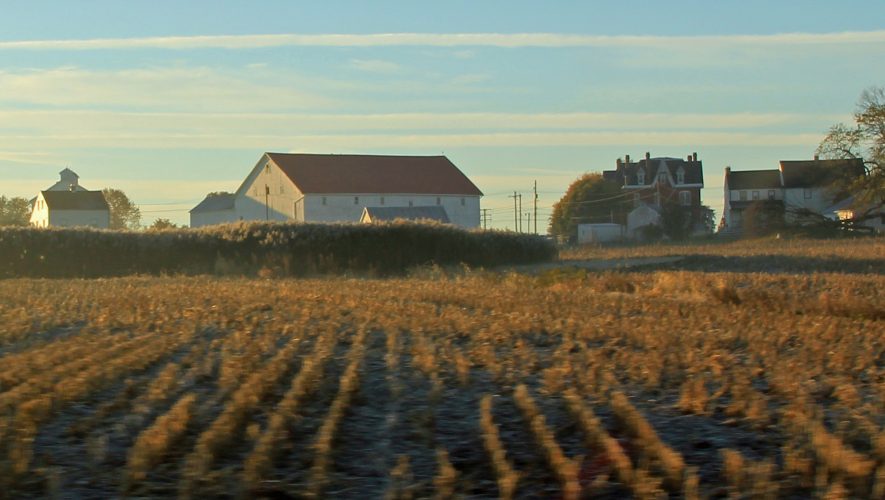As the Iowa caucus steadily approaches, Democratic primary candidates are eager to demonstrate their support for rural America, promising to bolster industries that have yet to shift jobs overseas. In Iowa, the largest of these industries is ethanol, a biofuel made from the closest thing Iowa has to gold: corn.
Ethanol is a biofuel made of “various plant materials,” but most importantly for Iowa, corn and soybeans. When ethanol became a popular additive to gasoline in the 1970’s due to the substantial petroleum shortages as a result of violence in the Middle East, the biofuel seemed like a promising alternative to fossil fuels. Much of the debate over ethanol stems from whether or not the fuel is sustainable. Supporters reference statistics supporting the claim that ethanol is environmentally friendly due to the fuel being “carbon neutral,” meaning there is no net release of carbon dioxide. Pro-ethanol groups argue that the process of growing corn results in enough CO2 absorption to offset the carbon released when the biofuel is burned.
For a time, ethanol did genuinely seemed like a more sustainable option, until the Renewable Fuel Standard (RFS), a federal program that mandates minimum volumes of renewable fuels being combined with standard oil, was passed in 2005.
When indirect impact on land is taken into account, ethanol’s environmental consequences are much more severe than fossil fuels. RFS raised corn prices by thirty-one percent and soybean prices by nineteen percent, substantially driving up production of those crops. The increased incentive for the production of corn, artificially created by the federal government, led to the conversion of 1.6 million acres of grassland, shrubland, wetland and forestland between 2008 and 2016.
This RFS-led land conversion has contributed to the depletion of essential habitats. The University of Wisconsin estimates that seventeen percent of the Upper Midwest’s milkweed plants were destroyed between 2008 and 2016. Monarch larvae rely almost exclusively on these plants, making them essential for the species’ survival. Butterflies are not the only animals impacted by agricultural expansion. The habitats of 276,000 birds were converted to cropland and in 2016, it was discovered that one-third of all grassland birds are at risk of extinction due to loss of habitat.
Ecological sustainability aside, the pollution resulting from RFS’s policies is seriously impacting humans. In 2014, the city of Toledo, Ohio had to shut down its drinking water supply for three days because of toxic algae blooms. The toxic algae had grown because of the pollution resulting from industrial crop production. Pesticides and other farm pollution create excess nitrogen and phosphorus in the water, which exacerbates algae growth. Algae decreases the quantity of oxygen in the water, killing marine wildlife, and in some extreme cases promotes bacterial growth that can be harmful for humans.
In terms of greenhouse gases, RFS results in the production of 27.1 million metric tons of carbon dioxide annually from land expansion alone—that’s equivalent to more than seven coal-fired power plants. Environmental policies should not be less sustainable than coal, as this only strengthens PACs and candidates who support the coal industry.
Despite the many issues with ethanol production, it has created a lot of wealth and employment within many agricultural communities. These opportunities are coveted by small towns who have experienced economic challenges associated with automation and offshoring. The biofuel industry will pump an estimated $5 billion dollars into Iowa’s economy in 2019, accounting for three percent of the state’s GDP.
In many agricultural communities, ethanol has become the backbone of the economy, generating $2.5 billion in income for Iowa households while employing more than 48,000 people, 2.3 percent of Iowa’s total employment. What the average Iowan fails to realize is that “the land of the rolling prairie” may soon be “the land where the tall corn grows.”
Yet, even the candidates with the most environmentally conscious platform have failed to publicly address to the self-proclaimed “Corn State” that fifty-three percent of the corn it produces is contributing to the destruction of our environment. The importance of the Renewable Fuel Standard to Iowa’s economy has made every Democratic Primary candidate turn a blind eye towards ethanol’s environmental impact. Candidates like Amy Klobuchar of Minnesota have publicized their enduring support for the Renewable Fuel Standard. In a similar vein, Senator Bernie Sanders—who once criticized biofuel mandates for their “negative impact on farmers and consumers”—now claims ethanol is “an economic lifeline to rural and farm communities in Iowa and throughout the Midwest.” This is a contentious issue as there is no accessible and sustainable alternative to fossil fuel-ethanol blends that can be used to power cars; however, the fact that ethanol is more harmful than fossil fuels means that the incentivisation of ethanol needs to stop.
In an interview with Politico, Lukas Ross, a policy analyst for the nonprofit Friends of the Earth, criticizes Democrats who protect biofuels while still advocating for extreme climate crisis reform. “How can a Democratic candidate go to Iowa on Monday as an ethanol booster and then talk seriously on Tuesday about a Green New Deal?” Ross asks. While there are political consequences which can arguably justify this double standard, the hypocrisy of Democratic candidates is evident.
While Democratic candidates have polled well in Iowa’s urban areas, rural voters are leaning towards another Trump administration. The president won Iowa in the general election in 2016 by advocating for ethanol, and despite allowing for oil companies to reap most of the tax benefits from his 2017 Tax Cuts and Jobs Act, Iowans felt heard.
According to a recent poll by CNN and the Des Moines Register, sixty-seven percent of Iowa Republicans would definitely vote for Trump in 2020. Conversely, only thirty percent of Democratic caucusgoers believe that nominating a candidate who supports “Green New Deal” is very important. Support for ethanol is a top priority for Iowa’s rural communities while repealing the Renewable Fuel Standard just isn’t as important for environmentalists.
As the leading primary in the nation, the Iowa caucus holds a significant competitive advantage for the candidates. Being a top runner in the caucus is extremely important for any candidate who is serious about becoming president.
So what is the future of biofuels? Ethanol is a damaging but politically necessary resource that 2020 candidates don’t seem to be willing to fight against. Even the Green New Deal is avoiding the hard but necessary goal of tackling biofuels.
The more concrete “greenprint” by liberal think tank Data For Progress, however, “supports the next generation of biofuels.” While this may initially seem counter to environmental protection, the bulk of the harm of ethanol is not caused by the burning of the resource, but rather the strain on the land caused by the Renewable Fuel Standard. If expansion of cropland were not so heavily incentivized, biofuels could certainly play a minor role in a greener future. The “greenprint” also suggests that candidates “provide incentives for farmers to manage their soil, fertilizer, and manure in ways that reduce emissions, and to install wind turbines and solar panels on their land,” which suggests an alternative option for revitalizing the rural communities that will inevitably have to cut down on corn production.
In Iowa, wind energy technician is the second fastest growing job (after solar installers), with expected growth of 13.2 percent between 2017 and 2019. According to the Bureau of Labor Statistics in 2018 wind turbine technicians earned a median hourly wage of $30.64—an annual equivalent of $63,731for full-time work—which is quadruple the state’s minimum wage.
Iowa has been the nation’s leader in wind energy since its inception and was the first state to generate greater than thirty percent of its electricity from wind. Over thirty-seven percent of energy in Iowa currently comes from wind, and wind accounts for at least $14.2 billion in capital investment. Furthermore, landowners, rather than refineries, could be the ones making substantial gains from wind energy. Today, wind turbines generate $20 million to $25 million annually in lease payments to landowners in Iowa. This number is expected to grow substantially in the coming years as wind energy technology becomes more profitable and efficient.
Cars may not be able to be powered by wind energy (yet), but substantial investments in wind energy could save Iowa’s rural economies from experiencing another loss of major industry without a substantial replacement. Conserving the environment is essential, but so is protecting the people in this country who could lose their jobs and livelihoods for the sake of environmental progress. According to the Iowa Department of Economic Development’s slogan, “life[s] changing.” We can only hope that 2020 candidates realize this and advocate for the United States to cut back on the lucrative but litigious industry of ethanol, while incentivizing clean energy to support rural economies.



